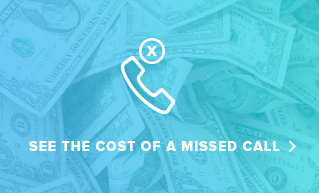 A good experience with a doctor often boils down to their bedside manner. A physician can provide the best care possible, but if they’re rude or fail to listen to patients, the entire experience can be tainted. When people seek the help of medical professionals, they’re often anxious and stressed about their health. A doctor with good bedside manner can assuage their fears, provide pain relief, and reassure them of possible outcomes. Even when delivering bad news, a doctor with a good bedside manner can soften the blow and make next steps clear.
A good experience with a doctor often boils down to their bedside manner. A physician can provide the best care possible, but if they’re rude or fail to listen to patients, the entire experience can be tainted. When people seek the help of medical professionals, they’re often anxious and stressed about their health. A doctor with good bedside manner can assuage their fears, provide pain relief, and reassure them of possible outcomes. Even when delivering bad news, a doctor with a good bedside manner can soften the blow and make next steps clear.
It’s not just physicians who should take steps to establish good rapport with patients. In fact, anyone working in a customer-facing position can benefit from learning bedside manner best practices. Whether you work as a medical receptionist, in a call center, or assist guests in a retail setting, understanding the benefits of good bedside manner can help you develop your customer service skills.
What is Bedside Manner?
The term bedside manner conjures the image of a trust doctor sitting at the bedside of an ailing patient. While this image isn’t incorrect, necessarily, it’s an oversimplification of what beside manner truly is. At its core, bedside manner describes the relationship a doctor shares with their patient. In many ways, it mimics the customer experience we often talk about in the business world. As with customer experiences, bedside manner can set the tone for an entire interaction between doctor and patient. When a physician is brisk or talks down to a patient, that patient is less likely to open up about their questions and concerns. Conversely, when a doctor is collegial and a good listener, patients are more comfortable sharing their thoughts, symptoms, and anxieties. It’s no wonder good bedside manner is so sought after in the medical community.
Good bedside manner comes naturally for some doctors, while others have to work hard to develop rapport with patients. Either way, it shouldn’t be neglected. Health outcomes are often better in patients who trust their doctors. By getting on the same page about symptoms, treatments, and progress, patients and their doctors can work more effectively toward their goals. Because bedside manner can set the tone for the entire professional relationship, it’s important that physicians master these skills early in their careers.
Establish Trust
You never get a second chance at a first impression, and doctors know this all too well. Their initial introduction to a patient can set the tone for the entire relationship. The same logic applies in the customer service world. Picking up the phone with a simple “hello” isn’t enough to establish trust. Instead, medical answering service professionals greet callers with an introduction to the business, their name, and an invitation to ask questions. A little effort in the first few moments of a customer interaction can make all the difference.
Communicate Clearly
The best doctors spend years honing their bedside manner skills – clear communication chief among them. Physicians spend much of their time with patients translating complex medical terms into layman’s terms. Customer service professionals must frequently do the same. If you’re hoping to quickly and effectively communicate an idea to a customer, work to develop language that makes sense to the average person. While your goods and services might not always be easy to explain, it’s important to create a call script that addresses common misconceptions about your offerings.
Practice Active Listening
Healthcare professionals know they need to listen just as much as they speak – if not more so. Customer service professionals must do the same. Active listening is a way to let callers know you’re not just waiting for your turn to talk. It’s impossible to get on the same page and to really address a customer’s concern without listening first. The next time you’re speaking with a caller, work to shut down your internal dialogue. Instead, act as an empty vessel for their questions and concerns. Call center professionals are experts in these skills because they pay off so handsomely.
Validate Concerns
Upon actively listening to caller concerns, it’s important to then validate those issues. Just as a doctor will nod sympathetically at a patient describing their most painful symptoms, a medical answering service receptionist will express their sympathy when callers are frustrated. This is especially true when speaking with older callers. Some are hard of hearing, while others may just need some extra support when navigating new technology. No matter the issue at hand, it’s best to always validate their experience and reassure them that a solution is possible.
Connect on a Human Level
Doctors have to have a degree of emotional separation from their patients, otherwise the job would be too demanding emotionally. Still, good bedside manner depends on a physician’s ability to empathize with their patients. The same logic applies to call center professionals. After taking dozens of calls in a row, it’s easy to lose sight of the humans behind each new inbound call. Rather than see such conversations as something to slog your way through, try visualizing the humans beyond the telephone. Even if you don’t have much in common with a particular customer, you can certainly relate to their reason for calling. Empathy is one of the most important qualities of a stellar customer service professional.
Call in the Professionals
Not every customer service professional has the ability to develop good bedside manner. When you find your customer experience lacking, it’s okay to turn to professionals for support. Just as a doctor might refer patients to another provider, business owners frequently partner with virtual receptionists for answering and virtual receptionist services.
At MAP Communications, we’ve mastered the art of customer service. Our team of highly trained virtual receptionists and call center workers can close the gap between the kind of service you’re offering and the kind you dream of providing. Ready to transform the way your organization handles inbound calls? Get started with a free trial of our live answering service now!




